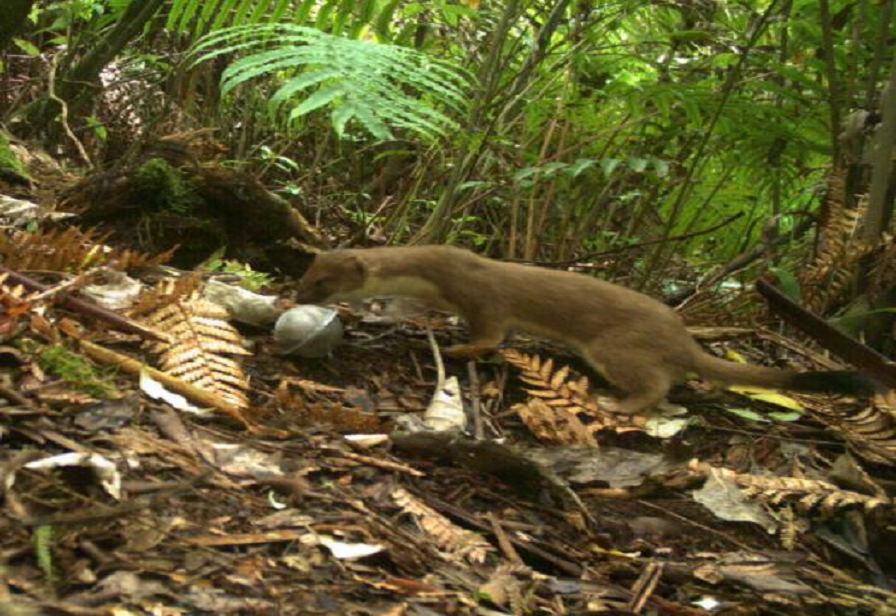Predator control efforts by Taranaki farmers are making a real difference to the rural landscape, with new research showing a 90% reduction in stoats and ferrets in areas targeted by trappers.

Taranaki Taku Tūranga - Towards Predator-Free Taranaki is working with landowners on a 10-year plan to control introduced mustelids (stoats, ferrets and weasels) across 240,000ha of the Taranaki ring plain. It builds on the Taranaki Regional Council’s long-running self-help possum programme, which has successfully maintained possum numbers at low levels on privately owned land.
Manaaki Whenua Landcare Research recently released the results of camera trap monitoring it carried out where mustelid trapping networks had been established – Waiwhakaiho (year one) and a buffer running around the national park boundary (year two).
In both zones stoat numbers declined by at least 90% between 2019 and 2020. No ferrets were detected in zone one while in zone two their numbers also reduced by more than 90%. Weasels were detected too infrequently to observe any trends.
Towards Predator-Free Taranaki project manager Toby Shanley says the monitoring results are a welcome boost for all involved.
“Over the first two years of the rural project we have learnt a lot about the best tools and technologies to effectively remove mustelids and we are constantly tweaking our approach.
“We have also received great support and commitment from landowners in the affected areas, without which this project would not be possible.”
In year 3 focus shifts to the area between Okato and Rahotu from the national park to the coast, with contractors due to install traps this year. After an initial knock-down period, landowners will take responsibility for maintaining the traps.
Mustelids are considered a threat to Taranaki’s environment, economy and native species. Controlling them helps native wildlife flourish and stops the spread of diseases such as tuberculosis.
Towards Predator-Free Taranaki is in the early stages of a study analysing the stomach contents of mustelids killed on the ring plain in order to get a better understanding of their diet.
While it’s too early to draw any conclusions, a recent sample of 21 mustelids found 33% had birds in their stomachs, 81% rodents, 28% insects and 19% vegetation. None had rabbits or hares, despite mustelids being introduced to New Zealand to control rabbits.
Over the next eight months they will work with Taranaki Mounga Project, taking further samples from both the mounga and ring plain. The final results of the study are expected next year.